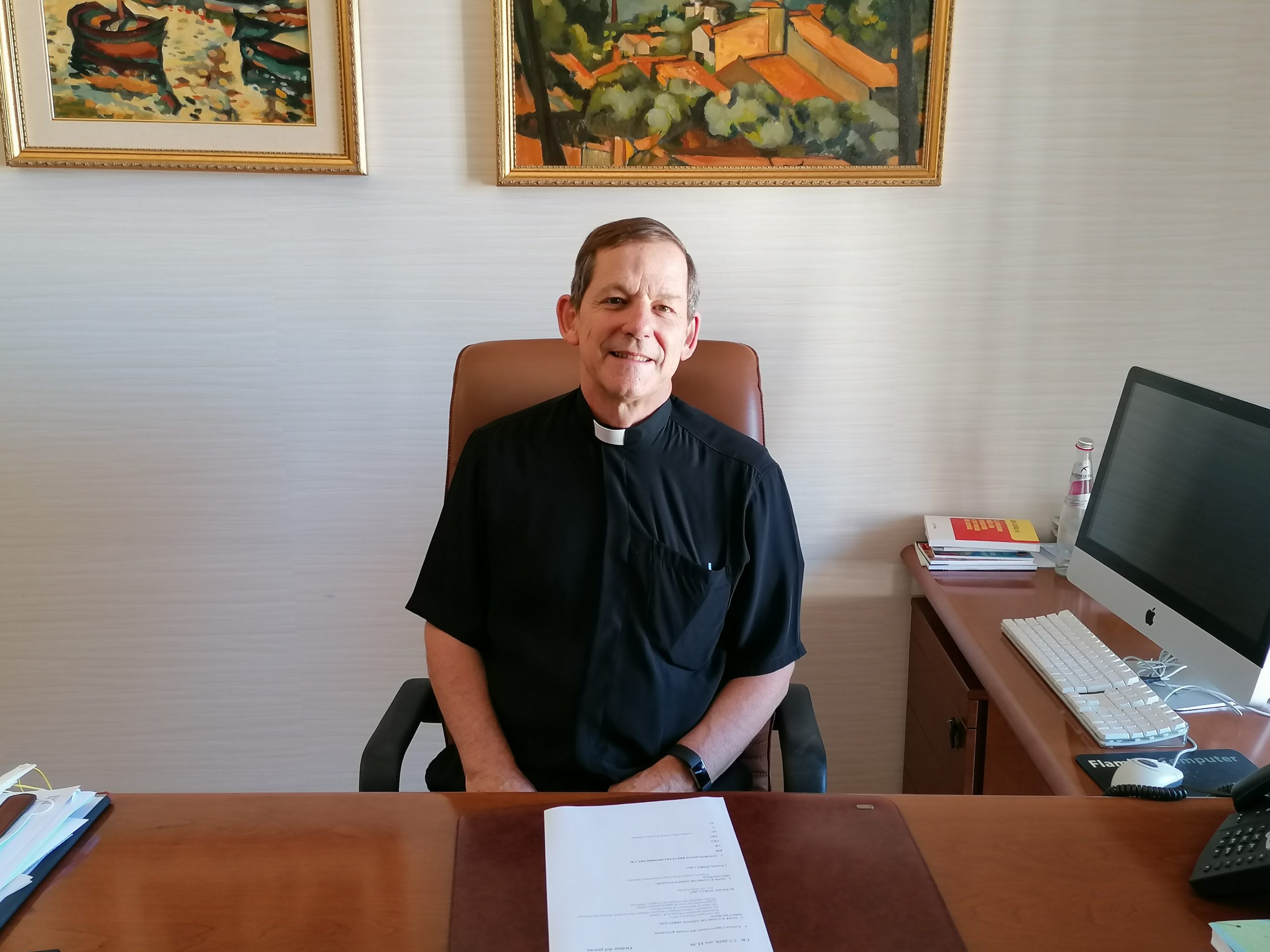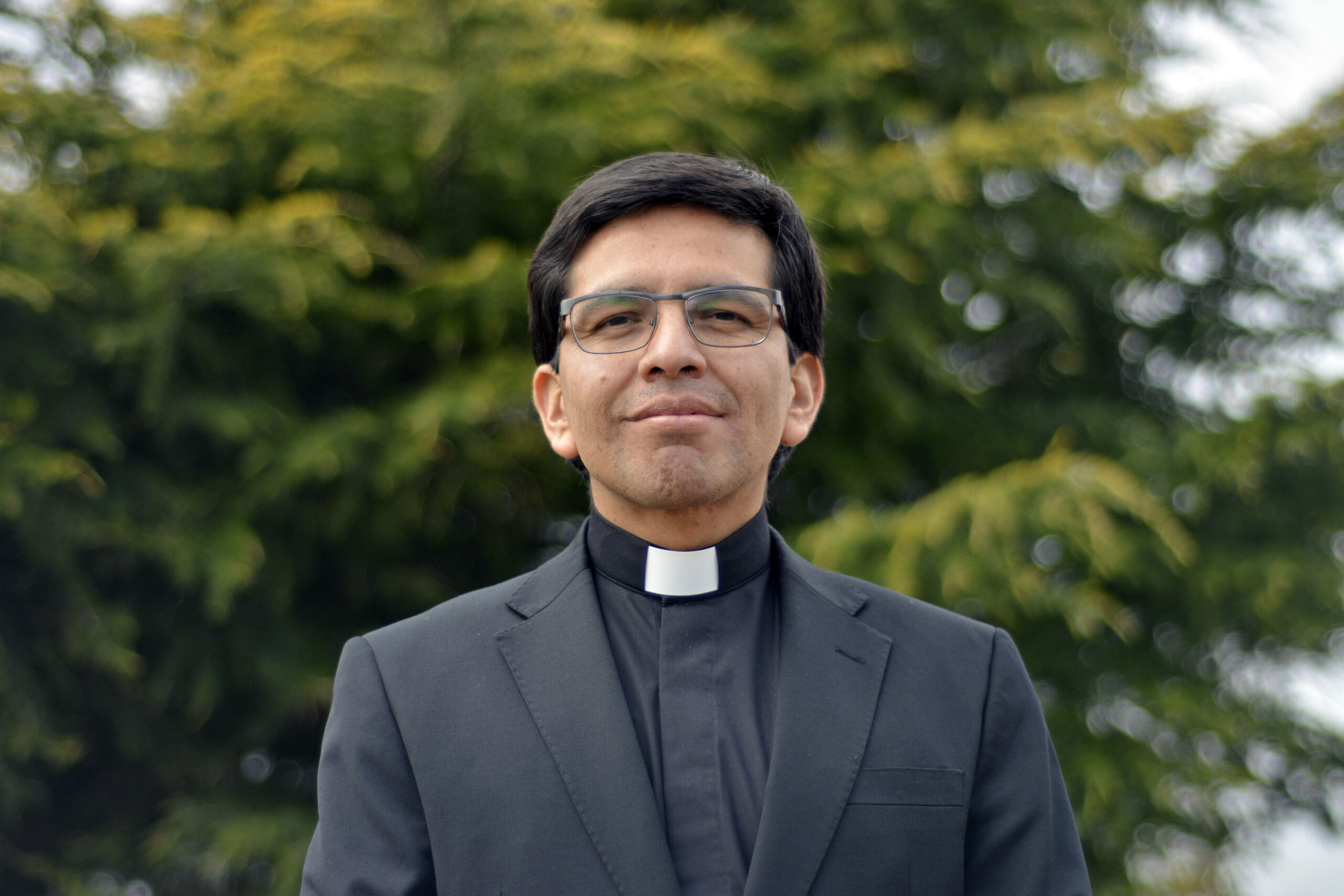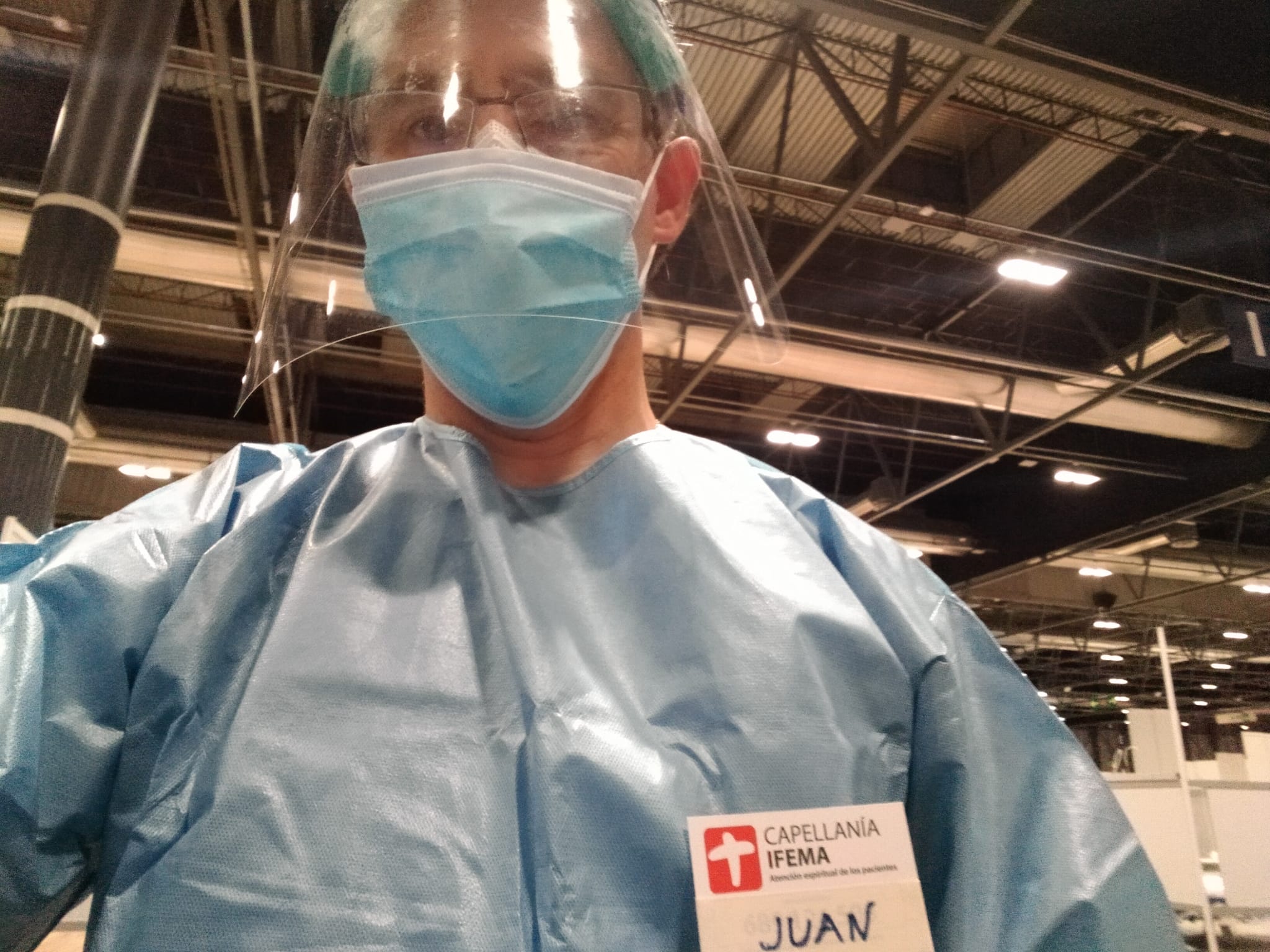
Fr. Juan Jolín, chaplain of the Retamar school, has spent more than a month assisting the sick at the Ifema field hospital.
"When I was given the Ifema chaplain's accreditation, I looked for a tape of the Pontifical University of the Holy Crosswhere I studied in Rome. This blue ribbon with the accreditation always accompanies me. In a way it comes to say, in a graphic way, that my pastoral work in Ifema and elsewhere is possible thanks to CARF". For Father Juan Jolin, formation is essential to be able to explain the faith with a new pedagogy.
Your story helps the campaign launched by CARF "Let no vocation be lost".
Fr. Juan has given several interviews to different media telling about his experience in this field hospital. He is one of the seven priests who have given support and affection to the more than 3,500 Ifema patients affected with coronavirus. "I am a doctor and before I was ordained, I practiced medicine. This was one of the reasons why the archbishopric of Madrid gave me this mission," he says.
Juan recalls the first days at Ifema, where tension and nervousness were palpable. The protective suits were extremely uncomfortable. Pavilion 5 was full of beds... "It was like landing on another planet. But when you see the sick and their loneliness, the tension disappears because you want to help," the priest says.
From the very first moment they experienced a warm welcome, companionship among health personnel, technicians, military personnel, patients, and a great joy for being part of the team's history.
The chaplain of Retamar reports that, despite the fact that the seven priests are dressed as priests, they have not felt hostility or alienation at any time. "In any case some surprise, especially among the youngest health care professionals, who, by the way, make up the majority. When we take off the sanitary disguise, Some people look at us and are surprised. They say, 'Well, I was standing next to a priest.
D. Juan points out that the formation he received in Rome thanks to CARF has helped him a great deal by approaching so many people without Christian formation and explaining the faith and the sacraments with a new pedagogy.
"There has been a lot of respect among everyone at Ifema".
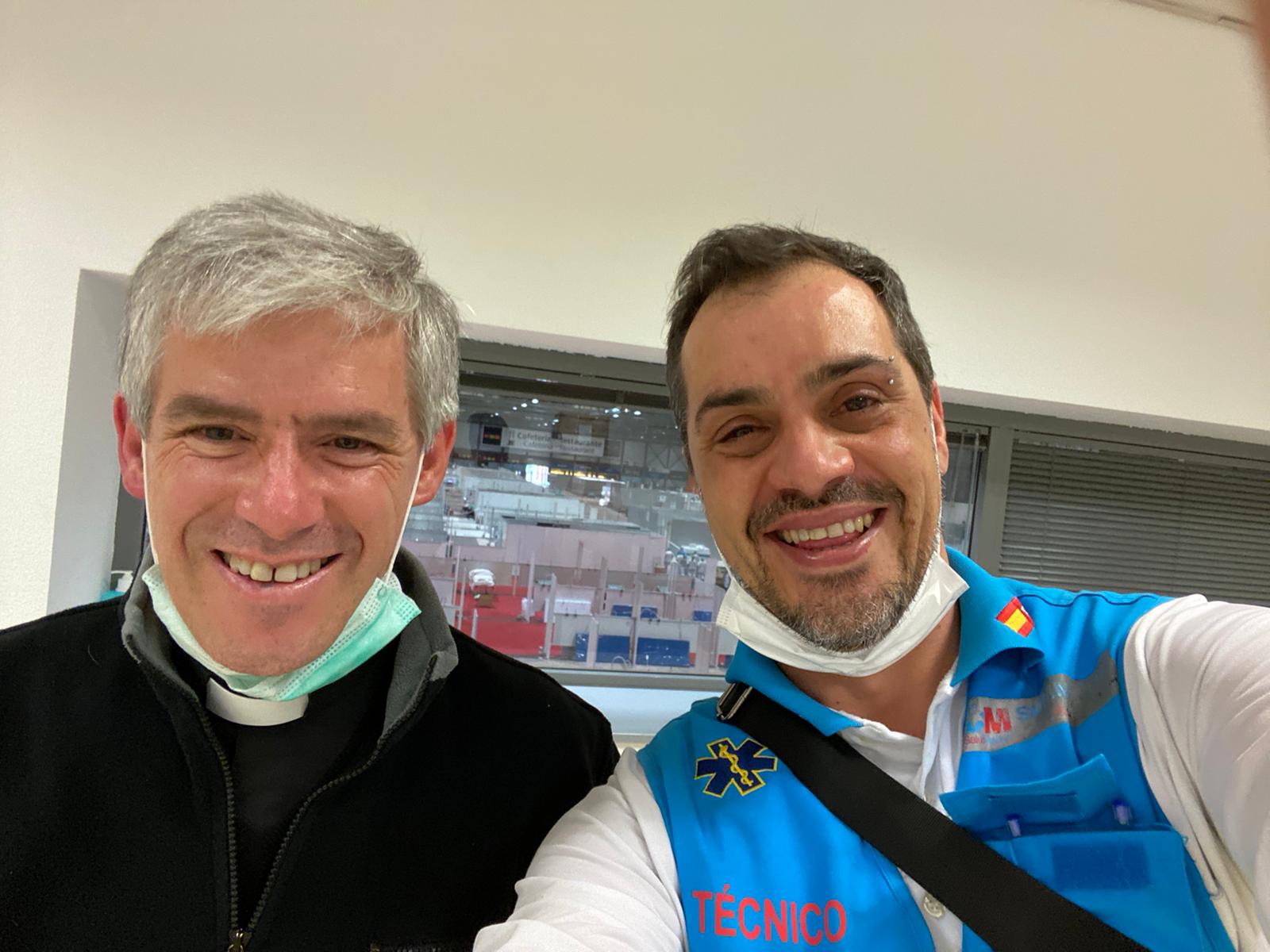
Fr. Juan says that at Ifema "everything is fellowship and because of the special circumstances, prejudices have exploded. People have come to me saying: I am not a believer, but you are helping people.
Juan together with the other priests formed a tandem with the team of psychologists and nurses. "Her professional listening is a great help. I was touched by the words of the team leader when we got to know each other: 'The important thing here is to add up,' she told us.
The chaplains have been able to respect the will of the patients and only go to those who ask them to do so. However, sometimes it was the nurses or psychologists who suggested to the chaplains that perhaps they could come and talk to a patient and vice versa.
Fr. Juan tells some stories that he has experienced during this time and that are part of the pastoral work at Ifema. "The sick are looking for closeness. They need hope. I remember a woman who came up to me and said: my mother died a month ago and we have not been able to have a funeral, Would you pray for my mother? Not being able to say goodbye to family members is a wound that remains open, a pending mourning that many people face".
"I spoke with a sick person who told me that wanted to baptize his two-month-old son when all this was over.e. I gave him my phone number and said: I will baptize him if you want. He was happy.
Any detail of love and affection, they appreciate. "When you talk to the sick You feel that you are an instrument of God for them. There were patients we cared for and the ones in the next bed were curious and some of them called us."
"What the sick need is closeness, comfort and to be listened to."
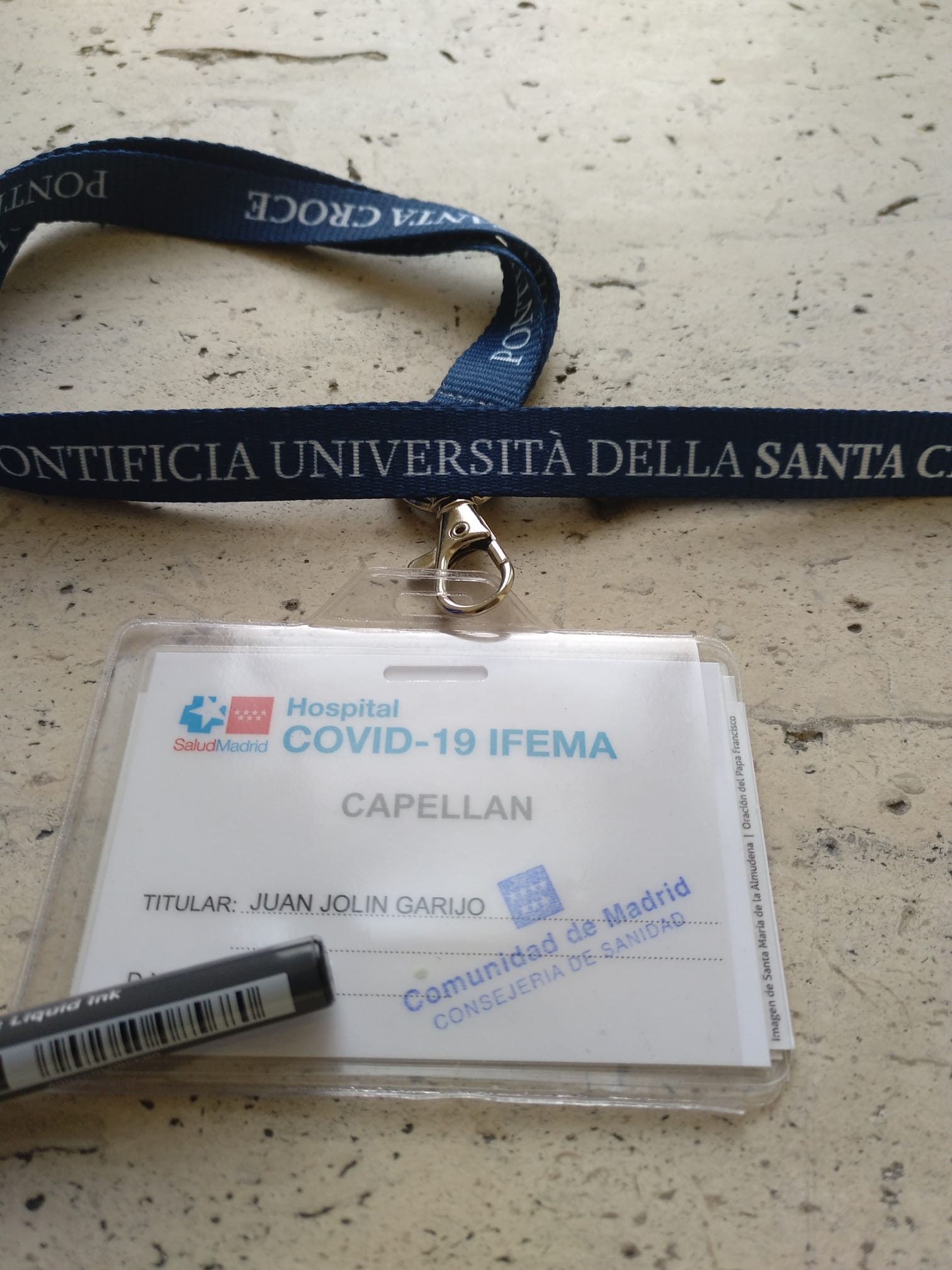
This is the ribbon of the Pontifical University of the Holy Cross in Rome, where Father Juan Jolín received his integral formation. The ribbon has accompanied him in his accreditation as chaplain of Ifema.
Despite the fact that Ifema takes in mildly ill people - very grateful, because many of them had been in a wheelchair for two days in any hospital - some of them have died. The chaplain says the family information department has worked very well. "When a patient was in his or her last momentsThey called the relative to come to Ifema to say goodbye to him".
Fr. Juan has given the sacrament of anointing of the sick on various occasions.s. "I gave the anointing to a patient who was very sick in the ICU and the next day he was sitting in his chair. Sometimes the anointing improves. It is not magic, as some say; it is a sacrament of the living, health of the soul and body. There are people who, when they receive the anointing, change their clinical condition".
Because for John Jolin, when medicine has done everything possible and there is nothing more humane to do, it is time for God's action. He recounts another moment that for him was shocking: "A very elderly patient asked me to give him the anointing. While I was reciting the readings, which were very beautiful, two nurses held each of the patient's hands. A very supernatural atmosphere was created".
